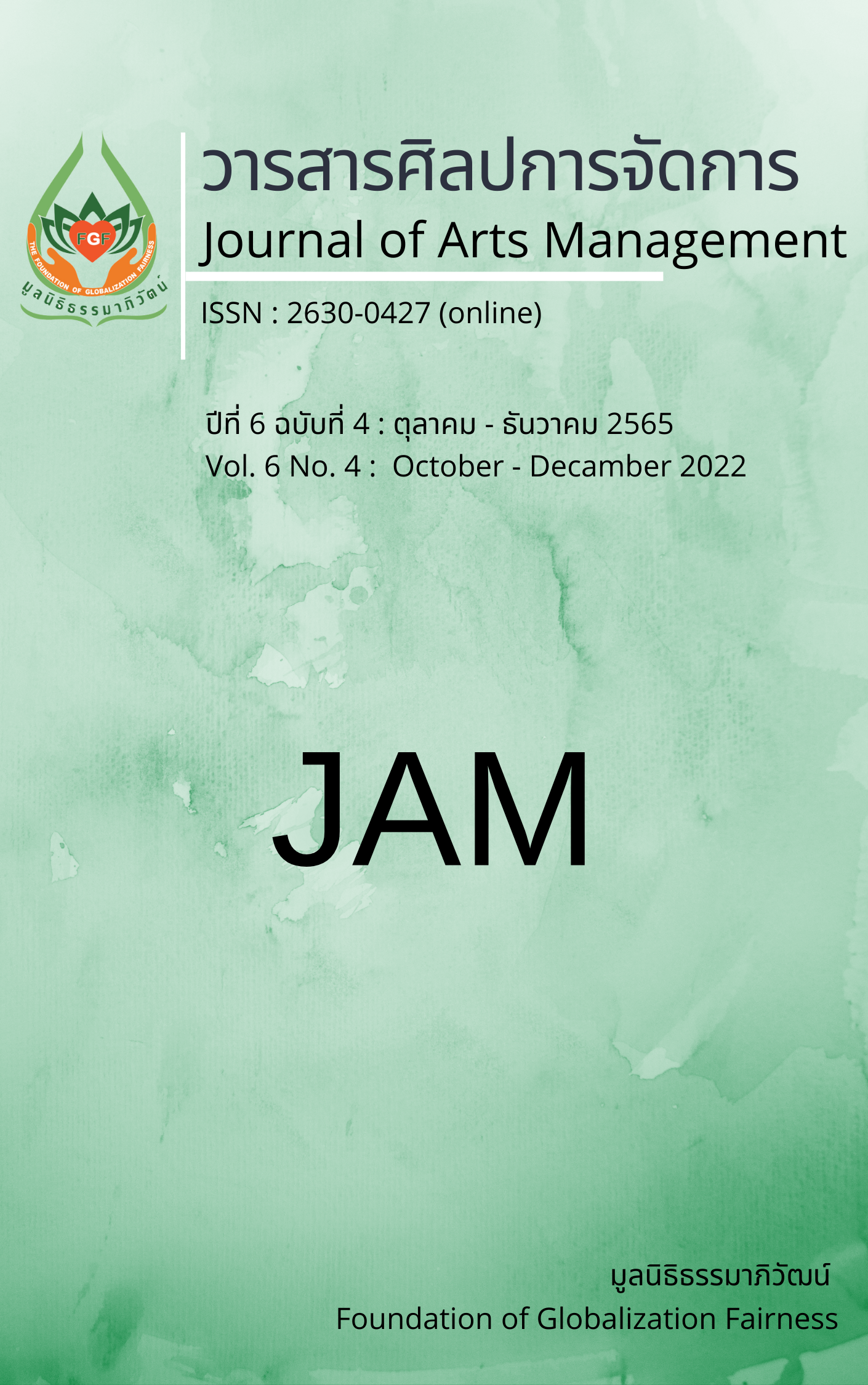Philosophy of Law in Tatiya Parajika
Main Article Content
Abstract
The objectives of this research article were: 1) to study the philosophy of law about manslaughtering; 2) to study Tatiya Parajika; and 3) to analyze the philosophy of law in Tatiya Parajika. This study used qualitative research methodology. The results of the study found that: 1) The philosophy of law about manslaughtering, in the metaphysical aspect, is comprised of both legal naturalism concept, in content of regulation, and legal positivism concept, in punishment determining and enforcement; 2) Tatiya Parajika, whole Vinaya pitaka also, has quality of norm. Tatiya Parajika is a complete diagnostic conduct system using elements of the offence. It has examples of applying the norm to the cases, which introduces different sanctions in cases that have different elements of the offence; and 3) There are similar philosophy of law concepts in Tatiya Parajika and positive law. So, the law about manslaughtering and Tatiya Parajika have very close ideas to each other, the integration of legal positivism concept and legal naturalism concept, the way of ethics, which is not just deontology or teleology, and the norm applying method or legal method to diagnosis.
Article Details

This work is licensed under a Creative Commons Attribution-NonCommercial-NoDerivatives 4.0 International License.
Views and opinions appearing in articles in the Journal of Arts of Management It is the responsibility of the author of the article. and does not constitute the view and responsibility of the editorial team I agree that the article is copyright of the Arts and Management Journal.
References
Audi, R. (1999). The Cambridge Dictionary of Philosophy (2nd ed.). Cambridge University Press.
Brix, B.H. (2005). Legal Positivism. In Martin P. Golding & William A. Edmundson (eds.), Philosophy of Law and Legal Theory (pp. 29-49). Blackwell Publishing.
Budziszewski, J. (2021). Commentary on Thomas Aquinas’s Treatise on Divine Law. Cambridge University Press.
Chiangkoon, W. (2012). Philosophy of Politic Economic and Society (5th ed.). Duantula Press.
Kasemsap, P. (2010). Philosophy of Law (11th ed.). Thammasat University Press.
Kraiwichian, T. (2003). Ethics of Lawyer in Collection of Lectures in Principle of Law Profession. Winyoochon Press.
Mahachulalongkornrajavidyalaya University. (1996). Thai Tripitakas. MCU Press.
Marmor, A. (2011). Philosophy of Law. Princeton University Press.
Murphy, M.C. (2005). Natural Law Theory. In Martin P. Golding & William A. Edmundson (eds.), Philosophy of Law and Legal Theory (pp. 15-28). Blackwell Publishing.
Na Nakorn, K. (2006). Criminal Law (9th ed.). Winyuchon.
Office of the Council of State. (2021, February). Penal Code of The Kingdom of Thailand. https://www.krisdika.go.th/librarian/getfile?sysid=390505&ext=htm
Panintrarux, P. (2019). Assaulting Medical Personnel as an Aggravating Factor[Master’s Thesis, Thammasat University].
Phraburakorn Theerasaro., & PhrakhruPalatchio Cheewitintririyo. (2018). Relation between Philosophy Religion and Science. In Banjong Sodadee (eds.), Basic Philosophy (5th ed.). (pp. 29-64). MCU Press.
Phradharmapitaka (P. A. Payutto). (1995) Abortion When does Life start Abortion in Buddhism View (2nd ed.). Buddhadharma Foundation.
Phramahamaghavin Purisuttamo. (2014). Comparative Study of Theravada and Mahayana Doctrine. MBU Press.
Phramahapornchai Siriwaro. (2016). Is Buddhist Ethics Teleological Ethics or Deontological Ethics. Journal of Graduate Study Review, 12(2), 49-63.
Phramahasurachai Chayaphiwattano. (2017). Buddhist Ethics on Killing. Ramkhamhaeng University Journal of Humanities Edition, 36(1), 139-160.
Phramethithammaphorn (Prayoon Dharmajitto). (1989). Ancient Greek Philosophy. MCU Press.
Phraphromkhunaphon (P.A. Payutto). (2016). Dictionary of Buddhism (27th ed.). Dharmasapa Buddhism Press.
Phrasomchai Payogo. (2013). Buddhist Ethics and the Problems of Panatipata in Theravada Buddhism. Journal of Graduate Study Review(Special Edition: Buddha’s Enlightenment for the Well-Being of Humanity), (1), 466-487.
Phradharmapitaka (P. A. Payutto). (1999). Karma, Hell-Heaven for New Generation (6th ed.). Sahadharmika Press.
Pruksadachan, S. (2017). Modern Legal Positivism: Hans Kelsen and H.L.A. Hart on the Concept of Law Critical Analysis[Master’s Thesis, Thammasat University].
Promta, S. (2005). Buddhism and Death Penalty. Journal of Buddhist Studies Chulalongkorn University, 12(3), 5-116.
Promta, S. (2005). Buddhist and Ethical Problems Prostitute Abortion and Euthanasia (3rd ed.). Chulalongkorn University Press.
Ploichum, S. (2017). Buddhist Philosophy in Sutta Pitaka (2nd ed.). Salakarnpim.
Singsuriya, P. (2011, April 16). Consequentialism/Teleology. http://www.parst.or.th/philospedia/consequentialism.html
Tangthuam, S. (2019). Aggravated Circumstances on the Offence of Murder: A Study on Murder of a Buddhist Monk, Novice, Holy Man, Clergyman or Leader of Any Religions due to Religious Hatred[Master’s Thesis, Thammasat University].
Tebbit, M. (2005). Philosophy of Law (2nd ed.). Routledge.
Tingsuk, A. (2014). Offences Against Life that are of “Light Punishment”[Master’s Thesis, Dhurakij Pundit University].
Wongsappakarn, W. (2011, April 16). Deontological Ethics.http://www.parst.or.th/philospedia/Deontologicalethics.html


